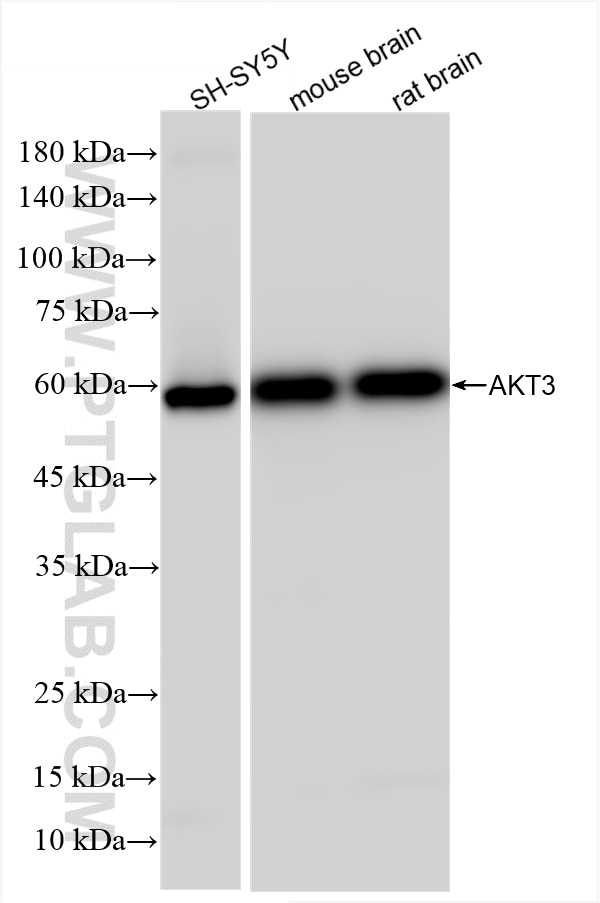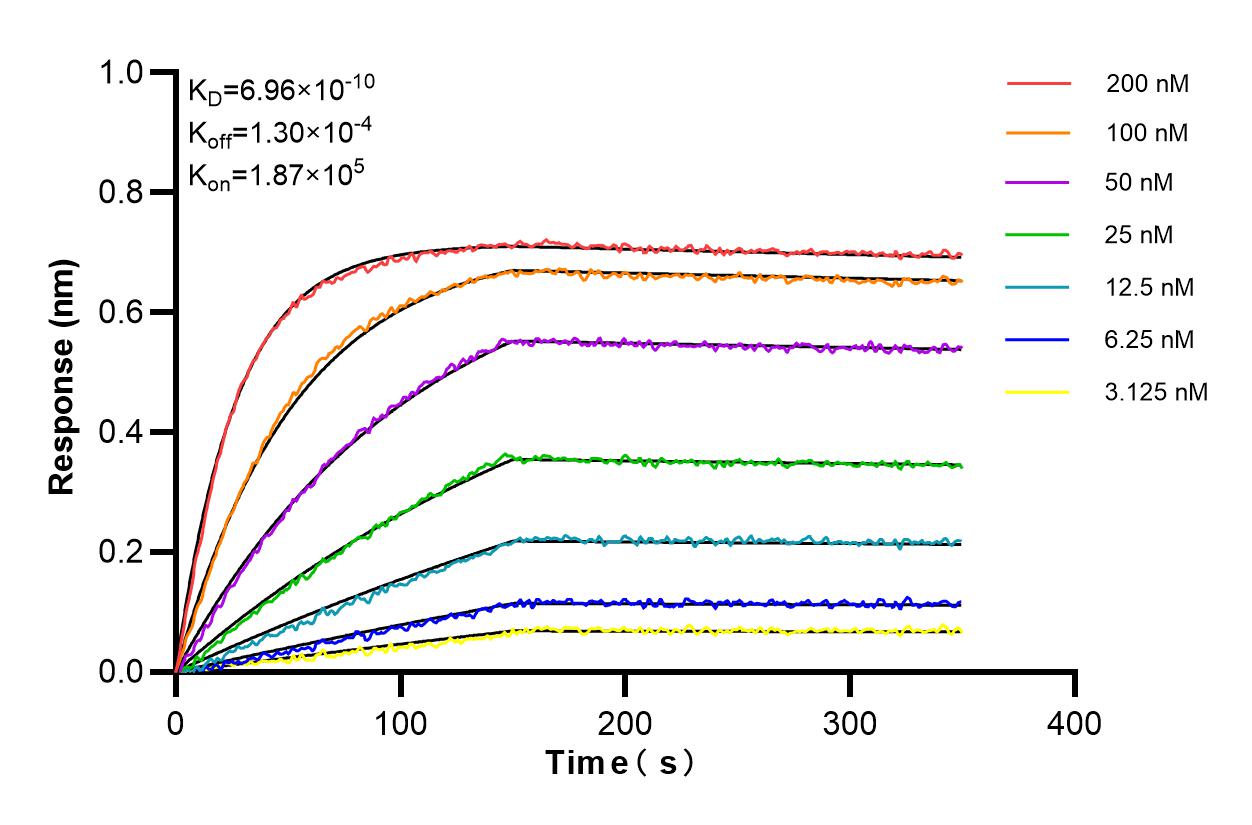AKT3 Rekombinanter Antikörper
AKT3 Rekombinant Antikörper für WB, ELISA
Wirt / Isotyp
Kaninchen / IgG
Getestete Reaktivität
human, Maus, Ratte
Anwendung
WB, ELISA
Konjugation
Unkonjugiert
CloneNo.
250046E12
Kat-Nr. : 85769-4-RR
Synonyme
Geprüfte Anwendungen
| Erfolgreiche Detektion in WB | SH-SY5Y-Zellen, Maushirngewebe, Rattenhirngewebe |
Empfohlene Verdünnung
| Anwendung | Verdünnung |
|---|---|
| Western Blot (WB) | WB : 1:1000-1:6000 |
| It is recommended that this reagent should be titrated in each testing system to obtain optimal results. | |
| Sample-dependent, check data in validation data gallery | |
Produktinformation
85769-4-RR bindet in WB, ELISA AKT3 und zeigt Reaktivität mit human, Maus, Ratten
| Getestete Reaktivität | human, Maus, Ratte |
| Wirt / Isotyp | Kaninchen / IgG |
| Klonalität | Rekombinant |
| Typ | Antikörper |
| Immunogen | AKT3 fusion protein Ag16298 |
| Vollständiger Name | v-akt murine thymoma viral oncogene homolog 3 (protein kinase B, gamma) |
| Berechnetes Molekulargewicht | 465 aa, 54 kDa |
| Beobachtetes Molekulargewicht | 60 kDa |
| GenBank-Zugangsnummer | BC121154 |
| Gene symbol | AKT3 |
| Gene ID (NCBI) | 10000 |
| Konjugation | Unkonjugiert |
| Form | Liquid |
| Reinigungsmethode | Protein-A-Reinigung |
| Lagerungspuffer | PBS with 0.02% sodium azide and 50% glycerol |
| Lagerungsbedingungen | Bei -20°C lagern. Nach dem Versand ein Jahr lang stabil Aliquotieren ist bei -20oC Lagerung nicht notwendig. 20ul Größen enthalten 0,1% BSA. |
Hintergrundinformationen
AKT3, also named as PKBG, is one of 3 closely related serine/threonine-protein kinases (AKT1, AKT2 and AKT3) called the AKT kinase, and which regulate many processes including metabolism, proliferation, cell survival, growth and angiogenesis. AKT3 is a key modulator of several tumors like melanoma, glioma and ovarian cancer. Active AKT3 increases progressively during melanoma tumor progression with highest levels present in advanced-stage metastatic melanomas.
Protokolle
| PRODUKTSPEZIFISCHE PROTOKOLLE | |
|---|---|
| WB protocol for AKT3 antibody 85769-4-RR | Protokoll herunterladen |
| STANDARD-PROTOKOLLE | |
|---|---|
| Klicken Sie hier, um unsere Standardprotokolle anzuzeigen |




